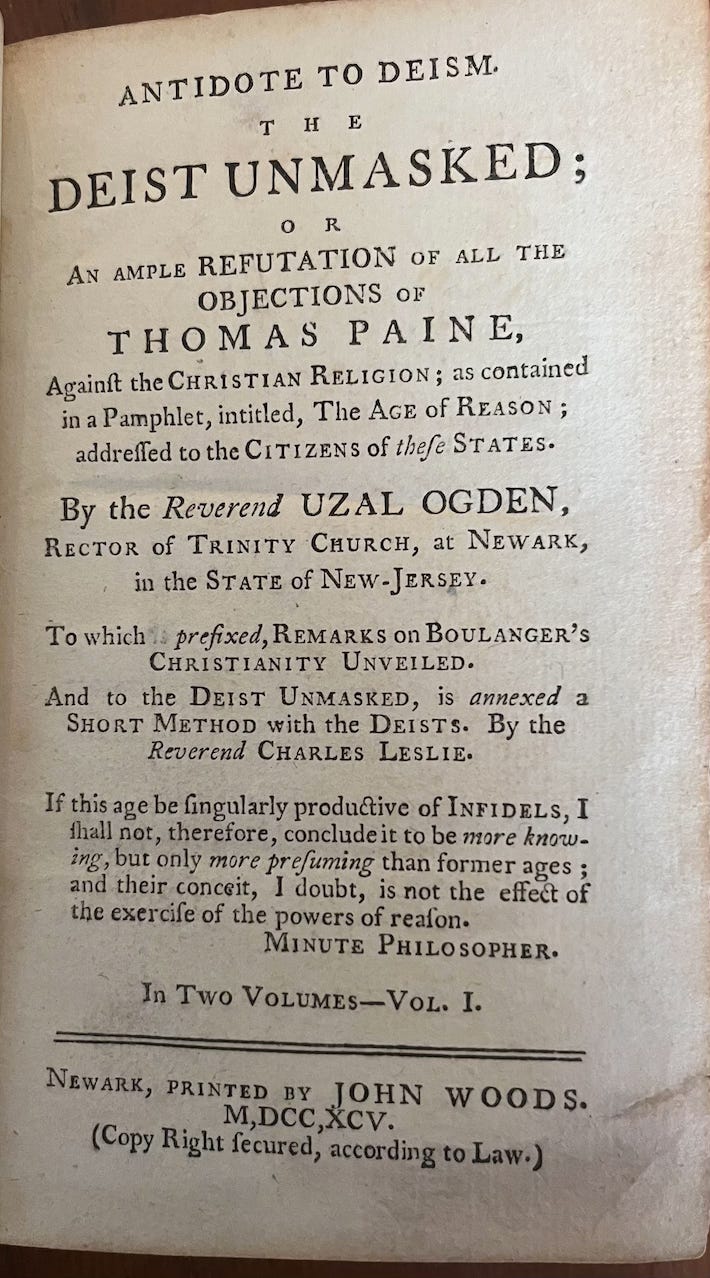News and Notes
NEA, rare books, Pulitzers, Sam Adams,
Been awhile since I’ve done a round-up so—-
Two weeks ago I wrote about how government funding might be cut for nonprofit small presses, and on Friday it happened, as the NEA sent out emails terminating grants. Here is a google doc with self-reporting by presses and other arts organizations about cuts. Some of my favorite presses, like Transit and Hub City, are on here. It’s terrible.
I was THRILLED while scrolling the Pulitzer Prize announcements to find Alexandra Lange won for Criticism! Alexandra wrote the introduction to Belt’s Midwest Architecture Journeys and is the most deserving of winners.
I did a podcast recently where a perennial complaint was brought up again, about how presses used to stay with authors for many titles, even if they weren’t profitable, because they believed in the author and the books, and it’s too bad this doesn’t happen much anymore, especially with the Big 5. But indie presses still do this, as Michael Reynolds of Europa Editions told a group, as reported in Publishers Weekly, recently as well. At Belt, we’ve published many authors more than once—even three times—in our short life, and it’s one of the best parts of my job, to work with authors on multiple books.
But I’ve been thinking about how this lovely scenario needs to go both ways to work, Authors also need to stick with the same press over several books for this sort of partnership to happen, and more and more I hear from authors a desire to move around, even if they enjoyed the experience with their current press. I wonder if the steadily increasing importance of agents might have something to do with this: for authors, their primary relationship might be with their agent, not their publishing house. At any rate, it IS great to have a partnership that continues over careers, not one-off books, and a partnership requires, well, two parties. 1I’ve been reading a biography of Samuel Adams, who wrote prodigiously, several articles a day, and then at night would go to the printing office of the Boston Gazette to set the type for his handwritten drafts, and then to the press to make copies to be delivered the next morning. That’s a lot of work! Plus it’s dirty and smelly and physical. Here I sit at a coffeeshop drinking a latte lightly pressing fingers and my revolutionary ideas, should I have them, could be read by you seconds later. One of the Adams’ goals in the 1770s was to use rhetoric to increase colonists’ disapproval of Parliament. When a few people were killed during a fracas with British soldiers in Boston, he carefully considered what language to use to describe it, settling on “massacre” to maximize outrage.
Harvard University Press has been going through it, as the student newspaper tells us.
I’m teaching my nonfiction book proposal course in July. It’s tons of fun and I’d love to work with some of you lovely newsletter readers. Feel free to shoot me any questions.
Belt usually publishes about one book per month, but we are sending seven books into the world over the course of four months, so we’ve been busily launching. Next up will be The Set Up, Great Lakes in 50 Maps, and a Dawn Powell novel newly in the public domain. Check out our current pre-order sale.
Sometimes I play around with doing a podcast based on my research about the history of American publishing, pegged to current publishing issues and debates. I think it would be fun, and if I were doing one now, I’d be talking about how colonists stealing books from England may have helped stoke the American Revolution as I continue reading about 18th century American copyright, which I wrote about last week, in Adrian Johns’ Piracy, a book that has perhaps the best circa 2009 cover.
Speaking of book covers, I’m a longtime fan of Nathaniel Roy’s book design newsletter. His recent post on ugly covers is great.
Another great newsletter is Scott Brown’s Dispatches from the Rare Book Trade which I read to fantasize about a third career as a rare book dealer. My eBay trolling for books printed stateside before 1800 resulted in an excellent addition to my tiny collection recently (note the “Copy Right secured, according to Law” on the title page—this book was printed five years after that law, which I wrote about last week, was passed). I’m dying to read more from those who know more about this section of the book trade deal if anyone has citations or links for me.
I am definitely not pro-LLMs but I am often anti- the way it is discussed by those who deplore it. So I found this thorough explanation of why using ChatGPT is not bad for the environment super-helpful.
Thanks for reading! Sorry or you are welcome for all the 18th century content.
Of course an option clause in a contract often requires an author to submit a subsequent, similar book to the same press. It’s easy to get around these clauses, though.


Thanks for the mention, Anne 🙂
Thank you so much. I love your posts.